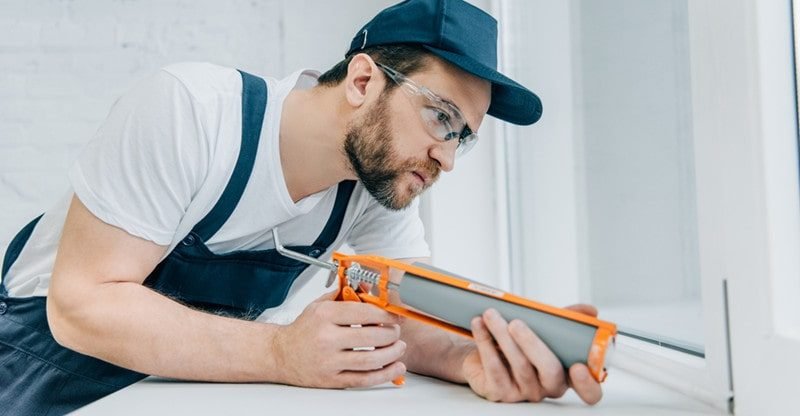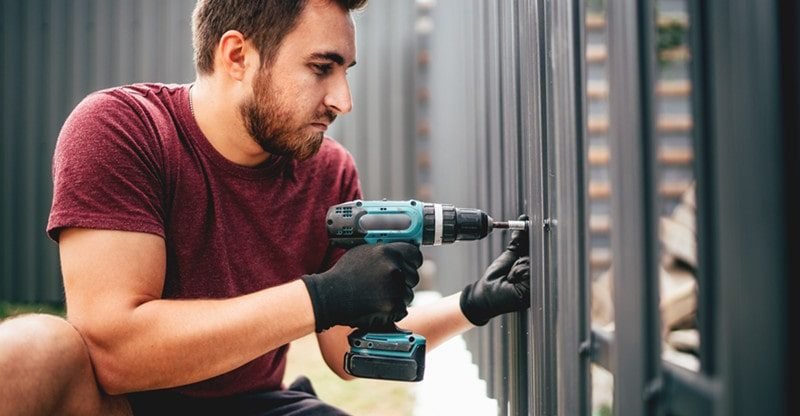
Sealers do what they are saying on the tin. They seal issues.
In the event you have a look round your property, you’ll see a number of totally different sorts of sealers. Some sealers are designed to stop air leaks, others are designed to seal in opposition to water. Some sealers are totally different colours whereas others are produced from totally different supplies.
For DIYers, understanding which sealant to make use of and the place to make use of it may be a bit difficult. There are simply so many choices on the desk.
Fortunately, we’re right here to make issues simpler.
This information will discuss you thru the totally different sorts of sealers out there and talk about their makes use of and purposes.
Acoustic Sealers
Designed to stop soundwaves from escaping, this sealer is used to soundproof buildings or rooms.
The acoustic sealer is pretty comfortable and versatile which permits it to mitigate and dampen soundwaves successfully. It additionally seals in opposition to moisture and vapor regardless of not being particularly designed for this goal.
Acrylic Sealant
It is a widespread sealant used to complete joints and joins round the home. It’s sturdy, paintable, odorless and simple to use.
Acrylic sealant is waterproof and insulating which is why it’s used on skirting boards and flooring.
Adhesive Sealers
Typically, sealers shouldn’t be used as adhesives. It is because they don’t seem to be designed to carry surfaces collectively.
In fact, because the identify suggests, adhesive sealers are the exception to this rule.
It’s essential to keep in mind that adhesive sealers will not be as sturdy as straight adhesives. It is because the sealer materials weakens the adhesive bonds.
Nevertheless, these sealers can be utilized on lighter issues like skirting boards and home windows. This stuff require each sealing and adhesive however don’t rely solely on the adhesive sealer for endurance.
Elastic Sealers
This sealer accommodates elastomeric bitumen which makes it versatile even when it has dried exhausting.
Used as a filler, elastic sealer may be utilized to cracks, holes, and joints. When set, the sealer creates a water-proof seal that expands to fill the specified hole.
Flooring Sealer
In contrast to many of the different sealers on this listing, ground sealer is just not a thick paste utilized with a caulking gun or tube.
A ground sealer is usually a skinny clear liquid that’s utilized to your flooring. It cures and creates a water-proof barrier over your flooring. It additionally helps forestall bacterial progress and harm to your flooring.
Not all flooring require sealing and never all ground sealers are appropriate for all flooring. All the time test labels and producer’s pointers earlier than making use of.
Foam Sealer
Foam sealer is typically generally known as increasing foam sealer. As you will have guessed, foam sealer expands because it units. The speed of enlargement varies from model to model however a 30% enhance is an effective common.
When set, foam sealer prevents air and soundwaves from passing by way of making these things preferrred to be used as insulation and to fill gaps and holes.
Latex Sealant
That is the sealer you’ll end up utilizing essentially the most as a DIYer. Latex sealer is straightforward to use, straightforward to color, has low odors, excessive UV safety, and is among the least expensive sealers.
As a waterproof, sturdy and versatile product, this sealant is right to be used in lots of locations round the home. It may be used round sinks, skirting boards, home windows, tiles, and just about wherever else you need.
Patio Sealer
Patio sealer is just like ground sealer in that it’s a liquid answer utilized to the bottom. Nevertheless, these things is usually stronger than ground sealer as a result of it has to deal with harsher situations.
Generally known as brick paver sealer or paving sealer, it prevents bacterial progress and stops moisture from seeping into your out of doors surfaces.
Polysulfide Sealer
These items is usually used inside swimming pools, fountains, chemical storage tanks, and comparable. Primarily, you’d use a polysulfide sealer if the realm goes to be submerged in water or chemical substances.
These items is hard. It could possibly survive underwater with out degrading. It’s exceptionally immune to most chemical substances and fuels. It’s additionally simply unbelievably sturdy.
Principally, polysulfide sealer is utilized by specialists or professionals.
Polyurethane Sealer
Polyurethane sealant is utilized in locations the place excessive energy is a precedence. It’s abrasion-resistant and shock absorbing which means it’s preferrred for traffic-heavy areas like flooring and even roads.
This sealer is waterproof and may adhere to just about any strong floor. The one draw back is that it may be fairly difficult to use. For that purpose, it’s usually utilized by professionals.
Rubber Sealant
Normally used for caravans, RVs and vehicles while you wish to create a semi-permanent seal, rubber sealant stays gum-like in consistency.
These items is generally utilized by professionals and specialists so that you’re unlikely to return throughout it as a DIYer.
Silicone Sealant
Silicone sealants are workhorses. They’re fully waterproof, UV resistant, versatile, and sturdy. This sealant can be utilized at residence round baths, sinks, and home windows however it additionally has industrial purposes.
The draw back to silicone sealer is the value and the truth that it has a reasonably noxious odor. One other draw back is that silicone sealant can’t be painted.
Urethane Sealant
This sealant may be painted which makes it helpful round the home. It’s waterproof and types an efficient barrier in opposition to air.
It’s tear-resistant and hard-wearing however it does degrade in UV gentle. That is additionally actually tough to clean off your palms and garments.














Leave a Reply